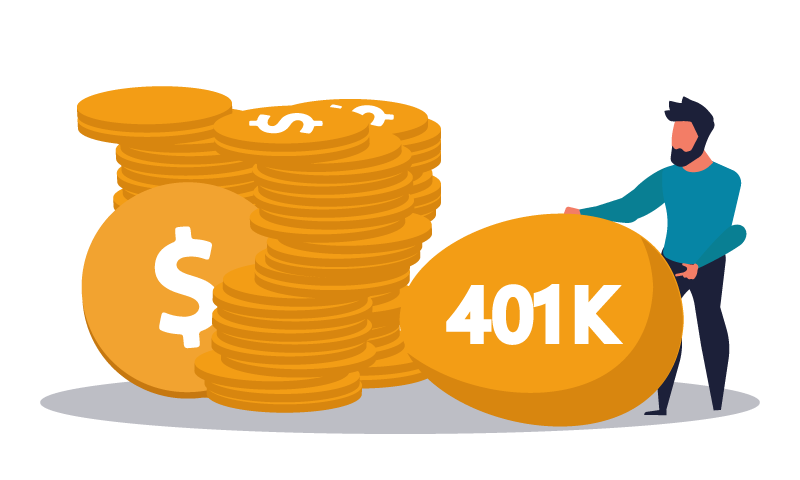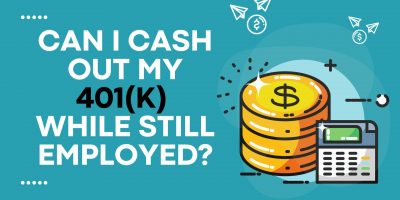
Considerations When Purchasing Webinar Software
As webinars grow in popularity and convenience, we look at the tools that make them possible. Learn how to choose webinar software that’s reliable, user-friendly, and has all the right features.

Owning a home can be a huge milestone for most people but raising funds for the down payment can be difficult. Hence, people consider using their 401(k).
In fact, when it comes to buying a home in the U.S., the down payment is not the only cost one should calculate:
|
Closing costs (application fee, appraisal fee, origination and/or underwriting fees, title insurance, credit check fee, title search fee, and transfer tax) |
|
Property taxes |
|
Homeowners & mortgage insurance |
|
HOA fees |
|
Maintenance, repairs & utilities |
Once the down payment and the costs are calculated, many employees start considering the possibility of using their 401(k) as first-time home buyers. However, the pivotal question is whether that’s a prudent course of action.
Usually, 401(k) is a savings plan reserved for the post-work years. For this reason, by imposing penalties and income taxes, the government tries to limit access to the account before retirement.
And in most cases, the early withdrawal can permanently damage the savings in the long run. So, before an employee takes that step, understanding the pros and cons of using 401(k) as a first-time home buyer is crucial. Likewise, it is advisable to explore other available alternatives.

Like any other payment option, using 401(k) for a down payment as a first-time home buyer has advantages and disadvantages. Using 401(k) as a first-time home buyer might be better than other loans regarding interests and total amounts.
Still, the penalties and rules associated with early withdrawals might be a deal-breaker for some people. Therefore, before making any withdrawal, homebuyers should consider the pros and cons, so they are not left wondering how long their 401(k) will last.
|
Pros |
Cons |
|
Having a large amount saved makes it possible for home buyers to afford their dream house, which would otherwise be out of reach. |
There are limitations on how many home buyers can lend or withdraw. |
|
When loaning funds from 401(k), it's like borrowing from oneself. Therefore, the interest will not go to another lender. |
Withdrawing money before retirement requires paying the penalty for early withdrawal and income taxes. |
|
The interest rates are lower compared to bank interest rates. |
Withdrawing funds drastically reduces retirement savings. In addition, it hinders their future growth, even if it is all put back over time. |
|
There are no credit score requirements to meet. |
While paying back a loan, making contributions, or receiving any from employers is not allowed. Hence, years of contributions can go to waste and reduce the savings. |
|
Usually, the money is available for use within ten business days. |
If the employee switches employers before repaying the loan, the lender might have to pay the total amount from the 401(k) savings. |
There are specific rules that a 401(k) plan entails. From contribution limits to the availability of accessing the funds, both employers and employees must adhere to them.
|
The maximum amount that an employee can defer from their salary in 2022 is $20,500. |
|
In 2022, workers older than 50 can make catch-up contributions of an additional $6,500. |
|
The employer's contributions cannot be higher than 100% of the employee's contribution. |
|
The maximum combined contributions in 2022 by employees and employers are $61,000. |
|
The annual benefits of a 401(k) plan can amount to $245,000. |
|
An account holder can make penalty-free withdrawals after the age of 59½, or 55 in case of resigning or getting fired. |
|
After age 72, account holders must start making required minimum distributions by April 1 following the year they reach 72. |
|
If an employee wants to withdraw money before turning 59½, they must pay a 10% early withdrawal fee and income taxes on the amount. |
Therefore, since the money should stay in the account until the employee turns a certain age to access it without penalties, withdrawing funds earlier than designated is not recommendable.
However, legally the account holder can use the money before retiring.
The pandemic changed the landscape of homeownership in the U.S. As a first-time home buyer making a 401(k) withdrawal in 2021 is possible but not easy. There are two ways available, and each has its benefits and drawbacks.
On the one hand, loans require paying taxed interest on the repayments, which is currently about 6.5-7.5%. In addition, they can amount to a maximum of $50,000 which should be put back within five years. If they are not paid back by then, they will count as distributions imposing income taxes and a 10% early withdrawal fee.
On the other hand, withdrawals have no limit, but they charge a 10% early withdrawal penalty fee on the amount. Moreover, the IRS might withhold 20% of the withdrawal for taxes. In addition, they are unrestorable, thus disrupting potential account growth.
There are two ways to use 401(k) as a first-time home buyer: 401(k) loans and 401(k) withdrawals.
401(k) loans have an advantage over 401(k) withdrawals since they don’t require paying a 10% early withdrawal penalty fee and income taxes. Moreover, while paying interest on the amount is obligatory, it is essentially like paying back yourself, ergo, adding to your savings account.
Also, credit bureaus don’t count loans, which means they don’t harm the credit score. And they don’t count toward the debt-to-income ratio, creating better odds of qualifying for a mortgage.
However, not all providers offer 401(k) loans as an option.
Moreover, the maximum limit of a loan is 50% of the vested balance or a maximum of $50,000. The repayment period is usually five years, and payments entail additional interest.
And lastly, any repayments made don’t count as contributions. In return, the employer doesn’t match contributions as well. This will, in time, significantly diminish the savings amount.
If loans are off the table or the down payment is more than $50,000, withdrawals are the only option.
The problem with withdrawals is that they carry a 10% early withdrawal fee and income taxes on the amount withdrawn.
Most providers only allow for withdrawals when there is a serious and immediate financial need. The IRS classifies this as a hardship withdrawal. According to the IRS, there are two rules to hardship withdrawals: the amount can only be as high as necessary, and they are available only if the account holder cannot get the funds elsewhere. In rare circumstances, buying a primary residence can qualify as a financial need.
A significant setback of 401(k) withdrawals is that they are unreturnable. Consequently, account holders will never be able to grow their savings as much as before withdrawing. In addition, they can’t roll them over to another plan.
The short answer is yes. As a first-time home buyer, an employee can borrow against the 401(k). Albeit, cashing out 401(k) to buy a house will impact the retirement account.
Therefore, it is best to explore what other alternatives are available before using the 401(k) as a first-time home buyer.
Many loans are available for people looking to make their first leap into homeownership. They usually require a low or no down payment and are a great alternative to tapping into a retirement account.
The bottom line is that using the 401(k) as a first-time home buyer should be a last resort. For most people, the opportunity cost associated with it is not worth the risk.
Therefore, before turning to the retirement account, employees should find out if they can take advantage of other options.
But if using the 401(k) is the only choice calculating all the costs associated with early withdrawals beforehand should be the first step toward making the decision.
The content in this blog post is for general, informational purposes only and is not meant to constitute legal, tax, accounting, or investment advice. You should consult a qualified legal or tax professional regarding your specific situation.
Browse our curated list of vendors to find the best solution for your needs.
Subscribe to our newsletter for the latest trends, expert tips, and workplace insights!

As webinars grow in popularity and convenience, we look at the tools that make them possible. Learn how to choose webinar software that’s reliable, user-friendly, and has all the right features.

You can cash out 401(k) early while still working. But how will it affect tax retributions and your overall pension fund?

In a world where deepfakes and counterfeit schemes are on the rise, is your business prepared to defend its brand from digital deception?

What does the retirement outlook for US workers look like?
Used by most of the top employee benefits consultants in the US, Shortlister is where you can find, research and select HR and benefits vendors for your clients.
Shortlister helps you reach your ideal prospects. Claim your free account to control your message and receive employer, consultant and health plan leads.